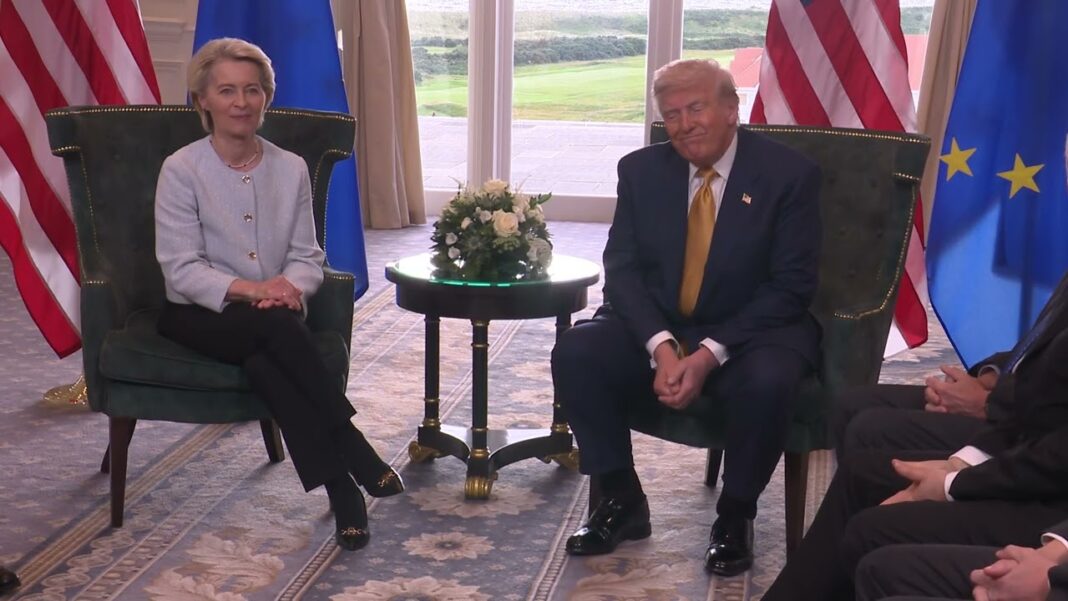The deal was struck days before the Aug. 1 deadline, after which nearly all EU imports would have been hit with 30 percent levies.
Senior figures in the European Union have reacted with a combination of relief and criticism to the new trade deal with the United States.
Immediately following the announcement on July 27, the European Commission released an official statement on behalf of the commission’s president, Ursula von der Leyen, in which she said the deal created certainty, stability, and predictability in uncertain times for businesses and citizens “on both sides of the Atlantic.”
She thanked U.S. President Donald Trump and called him a “tough negotiator” but also a “dealmaker.”
After months of negotiations, the two sides agreed on a trade deal on July 27.
The 27-member bloc will buy $750 billion worth of energy from the United States, and tariffs on EU imports, including for automobiles, will be set to 15 percent.
The deal was struck days before the Aug. 1 deadline, after which nearly all EU imports would have been hit with 30 percent levies.
Trump and von der Leyen met in Scotland during the U.S. president’s trip to the UK.
When asked whether she considered 15 percent a good deal for European carmakers, von der Leyen told reporters, “15 percent is not to be underestimated, but it is the best we could get.”
German Chancellor Friedrich Merz said in a statement on July 27 that he welcomed the deal and that the two trading partners would now avoid an “unnecessary escalation in transatlantic trade relations.”
Merz said his country’s export-oriented economy, with its large automotive sector, would have been hit hard without this agreement.
“We have thus been able to safeguard our core interests, even if I would have certainly welcomed further easing of transatlantic trade,” he said.
Relief But Not Celebration
Not all responses coming out of Europe were as positive.
Belgian Prime Minister Bart De Wever wrote on X on July 27: “As we await full details of the new EU–U.S. trade agreement, one thing is clear: this is a moment of relief but not of celebration.
“Tariffs will increase in several areas, and some key questions remain unresolved.”
De Wever said that he hoped the United States would “turn away again from the delusion of protectionism and once again embrace the value of free trade—a cornerstone of shared prosperity.”
French Minister for Industry Marc Ferracci similarly criticized the deal for being “unbalanced,” although he acknowledged that it brought stability to businesses and manufacturers.
Ferracci told RTL radio on July 28, “This agreement is unbalanced and should encourage us to continue working to rebalance trade between Europe and the United States.”








